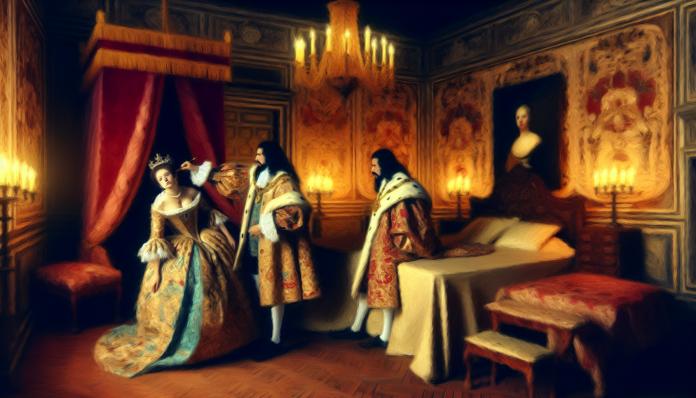Introduction
In the opulent courts of 17th-century Spain, where power and pleasure often intertwined, King Philip IV found himself at the center of one of history’s most captivating sex scandals. The discovery of his hidden diaries, which chronicled his numerous affairs and encounters, sent shockwaves through the royal court and beyond. This scandal was not simply a tale of lust; it represented the tension between public duty and personal desires in a time defined by strict social mores and political alliances.
A Time of Rigid Morality
The early 1600s were marked by a Catholic-dominated society, where marriage was sacred and fidelity was expected from both men and women. Yet, the reality of royal life often deviated from these ideals, as monarchs navigated the murky waters of political leverage, legitimacy, and lineage. Philip IV, who ruled from 1621 to 1665, was known for his charming demeanor and handsome appearance but also for his numerous extramarital liaisons that challenged the very fabric of the moral code of his time.
The Scandal
The scandal ignited when a servant stumbled upon a trove of secret diaries hidden within the walls of the Royal Palace in Madrid. These diaries contained pages filled with explicit accounts of King Philip’s passionate liaisons with various women, from noblewomen to actresses of the day. The anonymity of some individuals further fueled the intrigue, hinting at long-rumored secrets hidden within the corridors of power.
- Key Events:
- Initial Discovery: Rumors began circulating in 1640 when courtiers noticed changes in the king’s behavior, leading to whispers about the content of his diaries.
- Public Outcry: Once the scandal broke, it became a topic of gossip among noble families and common folk alike. Social gatherings buzzed with discussions about the integrity of the monarchy.
- Media Spark: The burgeoning media of the time—pamphlets and leaflets—amplified the sensationalism, leading to widespread dissemination of excerpts from the diaries.
Notable Quote:
One contemporary observer lamented, “How can a king, sworn to uphold the virtue of his throne, divulge his most intimate secrets to the pages of a book?”
Moral and Cultural Analysis
Society’s Reaction
The reaction to Philip’s scandal was mixed but predominantly critical. The court struggled with the dichotomy between admiration for the king’s charisma and disdain for his indiscretions. Nobles and clergy publicly condemned his behavior, fearing that it weakened the moral authority of the crown. The Catholic Church threatened to intervene, although such actions were complicated by Philip IV’s political acumen.
- Consequences:
- Philip faced increasing scrutiny and political pressure, especially from factions within Spain’s powerful aristocracy.
- Although the scandal did not lead to his dethronement, it marked a decline in his popularity and authority.
Modern Perception
If this scandal were to unfold today, the reactions would likely differ dramatically. The revelations of a powerful leader engaging in extramarital affairs might ignite public outrage, but it could also elicit sympathy in some quarters—viewed through the lens of personal struggle against public expectation. The advent of social media would amplify the scandal beyond localized gossip, turning it into an international phenomenon.
A modern audience might view King Philip IV’s actions through the prism of sexual agency and personal freedom, emphasizing the disconnect between personal and public lives—a frequent subject of discussion in contemporary discourse.

